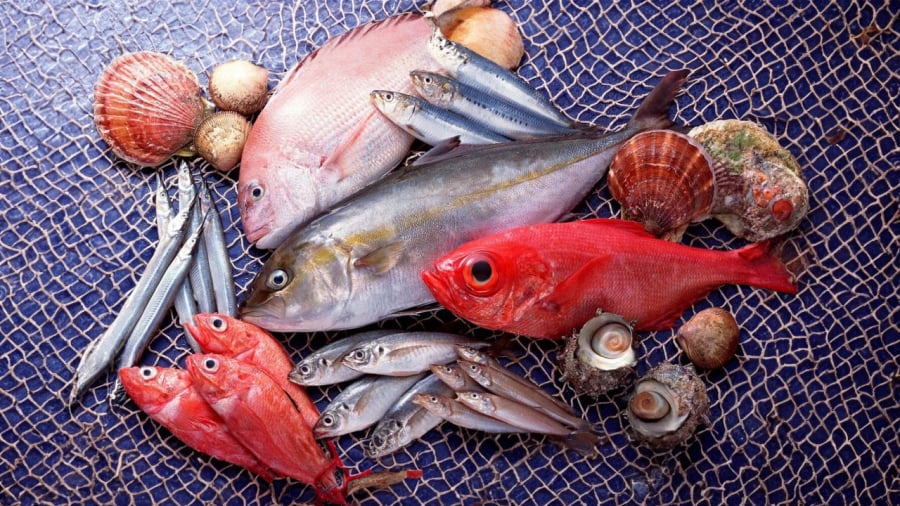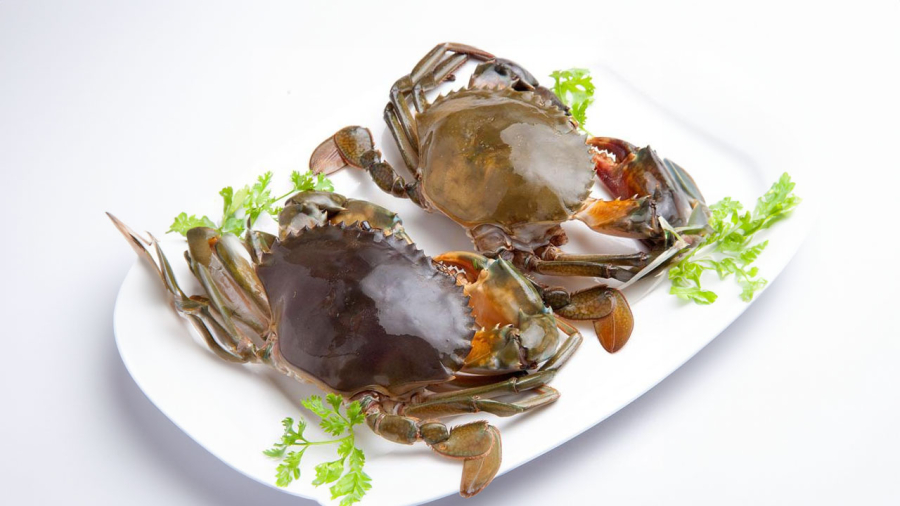Many people living far from the sea are not used to the smell of seafood. Especially when processing sea fish without skill, the fishy smell can spread throughout the neighborhood, even lingering in the house, and cannot be removed immediately.
Therefore, when processing seafood, it is necessary to pay attention to removing the smell, especially when you live in a small house where you cook. The fishy smell can even enter the house until the next day. This characteristic smell makes the dish less appealing and even scary for some people.
Here are some effective ways to remove the fishy smell from seafood:

How to remove the fishy smell from sea fish
Sea fish such as sardines, mackerel, and mackerel are often fishy because they are frozen without fresh fish. Moreover, during the freezing process, the seller may not store them properly, causing the decomposition of amino acids, which produces a fishy smell.
When preparing fish, remove all the blood inside the fish, especially the clotted blood in the spine and the black membrane inside the fish’s belly, as these are the important factors that make the fish have a strong fishy smell. Remove the gills, scales, and fins. Then soak the fish in diluted saltwater for 5 minutes, and rinse with clean water. It is recommended to rinse the fish with ginger wine. Especially, it is very good to rinse sea fish with green tea. Green tea effectively removes the fishy smell. In case you don’t have fresh tea, you can use dried tea to brew water and then rinse the fish. If you make braised sea fish, you should also add tea water and tea leaves to help remove the fishy smell. Furthermore, tea helps the fish meat become firmer and tastier.

How to remove the fishy smell from shrimp
Shrimp is usually less fishy than fish. But if shrimp is frozen for a long time, it will also be fishy compared to farmed shrimp.
When preparing shrimp, remember to remove the whiskers, tail, and intestines because the intestine contains dirt and causes the shrimp to be fishy and smelly. To remove the fishy smell from shrimp, after removing the whiskers and intestines, wash them thoroughly, and put the shrimp in a bowl of water mixed with salt, sugar, and a little white wine. This method not only removes the fishy smell but also makes the shrimp firm and crunchy after processing. Especially when buying shrimp, pay attention not to buy shrimp that are soft, white, and emit a strong fishy smell. It’s better to buy live sea shrimp.
How to remove the fishy smell from squid
For squid, when you buy it, rinse it thoroughly and then put it in green tea water to remove the fishy smell and make the squid more fragrant. You can also wash the squid with ginger, but washing it with green tea water makes the squid more delicious and appealing.

How to remove the fishy smell from sea snails
When you buy sea snails, you need to rinse them a few times with clean water to remove the sand, and then the snails need to be soaked in cold water. When cooking snails, add lime leaves, lemongrass, chili, and ginger wine to help remove the fishy smell and enhance the aroma.
How to remove the fishy smell from crab and shellfish
To remove the fishy smell from crab and shellfish, you can use ginger and wine. After washing the crab with normal water, add crushed ginger and white wine to marinate the crab. This mixture not only removes the fishy smell but also gives the crab a fragrant aroma when steamed.

Some notes when processing seafood
To make seafood delicious, it must be thoroughly washed several times to avoid sand particles. If seafood has a sticky texture, add a few drops of vegetable oil to the water.
When cooking seafood, open the lid because the decomposition of amino acids causes the fishy smell, so opening the lid allows them to escape with the steam, reducing the fishy smell.
When processing seafood, use fragrant spices such as pepper, chili, ginger, scallion, coriander, celery… or acidic spices such as lime, tamarind, calamondin, vinegar… because they not only help remove the fishy smell effectively but also enhance the flavor and color of the dish.
How to Choose Fresh Seafood: Important Cabinet Tips
In recent years, concerns have been raised over the practice of injecting urea and chemicals into seafood, making it difficult to find safe and fresh options. To help, DienmayXANH.com offers some tips on how to select the best seafood available. Seafood is a rich, delicious, and nutritious source of food, and this advice will help ensure you make the most of it.





































